‘Statesman’ Paul Keating voices Chinese lines after meeting with Wang Yi
Paul Keating has amplified Wang Yi’s claims his country is underwriting global living standards and Australia must turn to China to secure its economic future.
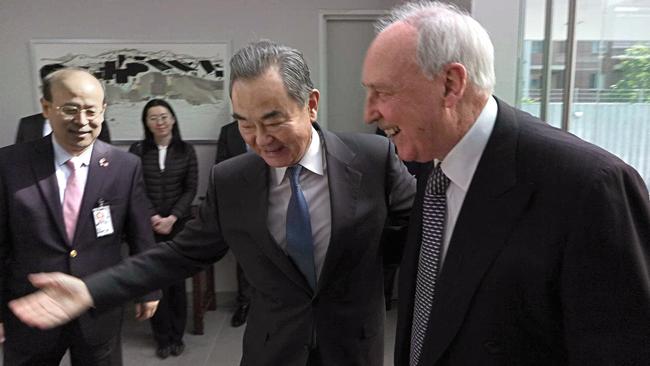
Paul Keating has amplified Chinese Foreign Minister Wang Yi’s claims that his country is underwriting global living standards and Australia must integrate more closely with China to secure its economic future.
The former prime minister said after his private meeting with the Chinese Foreign Minister that Mr Wang underlined China’s importance to Australia’s economy, declaring Australia’s future lay in East Asia.
In Chinese media footage of the encounter, Mr Wang told the pro-China former prime minister he was a “world-renowned statesman” who had “always cared about and supported China-Australia relations”.
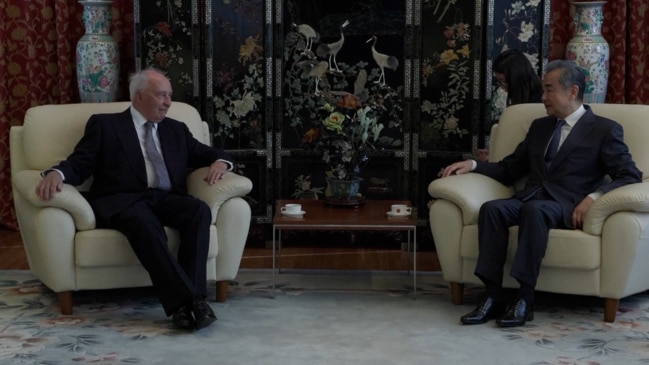
In a statement, Mr Keating said his meeting with Mr Wang, which lasted 65 minutes, was “very pleasant and engaging”. They had a largely “big-picture discussion about the geostrategic balances and influences in the world”, he said.
“Minister Wang Yi emphasised China’s ability to keep on growing and strongly, pointing out that China is still only 55 per cent urbanised – another 20 per cent to go,” Mr Keating said.
“He said the world will still benefit from China’s ability to supply high-quality relatively low-priced goods which will help underwrite higher living standards in the West and other regions of the world.
“He both encouraged and welcomed Australia’s continuing integration with East Asia where he believed Australia’s future lies.”
A report on the meeting aired by Chinese broadcaster CCTV said Mr Keating declared China “did not pose a threat to other countries” and was contributing to “regional peace and stability”. Mr Wang put an arm around Mr Keating as they entered the Chinese consulate in Sydney, saying it is “such a pleasure to meet with you”. They sat side-by-side in armchairs for the talks in a lavishly decorated room, with Chinese ambassador Xiao Qian sitting nearby.
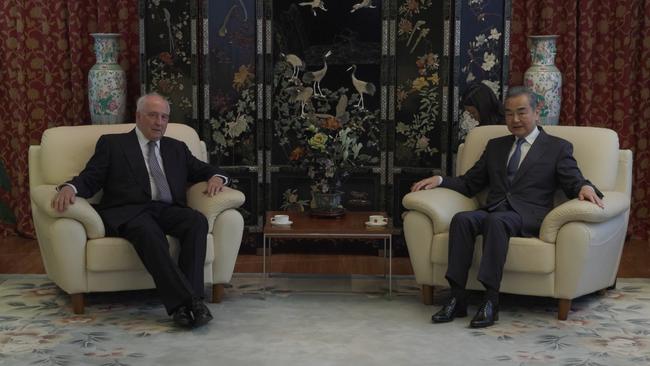
Their meeting followed days of controversy, which overshadowed Mr Wang’s formal talks with Foreign Minister Penny Wong a day earlier.
Senator Wong went as far as issuing a statement to The Australian declaring Mr Keating “does not speak for the government nor the country”. The pointed remark followed Mr Keating’s criticism of Senator Wong’s performance as Foreign Minister, and his rejection of government warnings over China’s destabilising influence in the region.
According to CCTV’s account of the meeting, which was closed to Australian media, the former prime minister praised China’s “huge” economy and noted its “vast space for development”.
Mr Keating said he was “full of confidence” for the future of Australia-China relations, CCTV reported.
“Wang Yi appreciated Keating’s long-term concern and support for the development of China-Australia relations,” the broadcaster said.
Mr Keating said Mr Wang was “very positive about putting bilateral difficulties behind us”, and was encouraged by the Albanese government’s efforts to restore “appropriate equilibrium”.
He said their conversation also ranged over the history of the bilateral relationship, including “my relationship with Jiang Zemin and Zhu Rongji in putting together APEC”.
According to CCTV, Mr Wang said the two countries should “understand and trust each other” and “pursue win-win co-operation”.
The Chinese broadcaster said Mr Wang noted that Australia was an ally of the US, but added that Canberra was “welcome to independently” make policies based on its “own fundamental interests”.
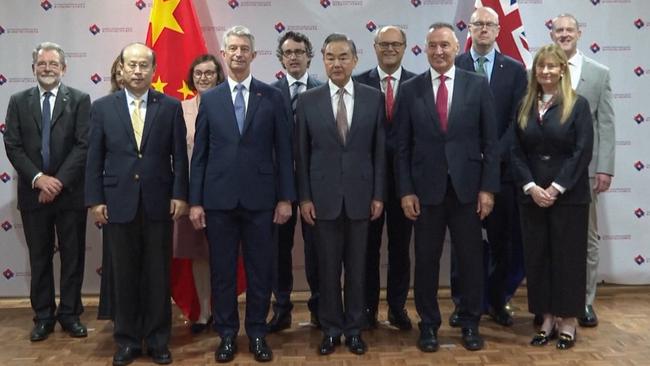
Opposition home affairs spokesman James Paterson said the meeting was an insult to the Albanese government by both Mr Keating and the Chinese government.
“(Paul Keating) is the most prominent defender of the Chinese government when it comes to their human rights abuses and other activities,” he said. “And for him to agree to meet with Wang Yi and for the Chinese government to make a request for him to meet with Wang Yi is a calculated humiliation of the government here in Canberra.”
He said the slight was “not the act of a friendly nation”.
“(China is) saying ‘even at your highest levels amongst your exalted former leaders we’ve got friends, and don’t forget that, and don’t forget that we can take advantage of that when we choose to’.”
But cabinet minister Tanya Plibersek said it was “perfectly natural” for Mr Keating to meet the visiting Chinese dignitary.
Senator Wong challenged Mr Wang on Wednesday over China’s threat to Australia’s nickel industry, its unsafe conduct in the South China Sea, its death sentence for Australian Yang Hengjun and its wider human rights violations.
Mr Wang later met with business figures, strategists and representatives from the university sector, telling them the world “should not be dominated by one or two countries”, and that “and all countries are equal”.
Anthony Albanese, who also met with the Chinese envoy, told parliament the China relationship was one of Australia’s most important.
“It is a mature and responsible approach to re-establish the relationship without compromising on any of our core interests,” he said.
“I have said we will co-operate where we can, we will disagree where we must, but we will engage in our national interest. And it is paying dividends.”

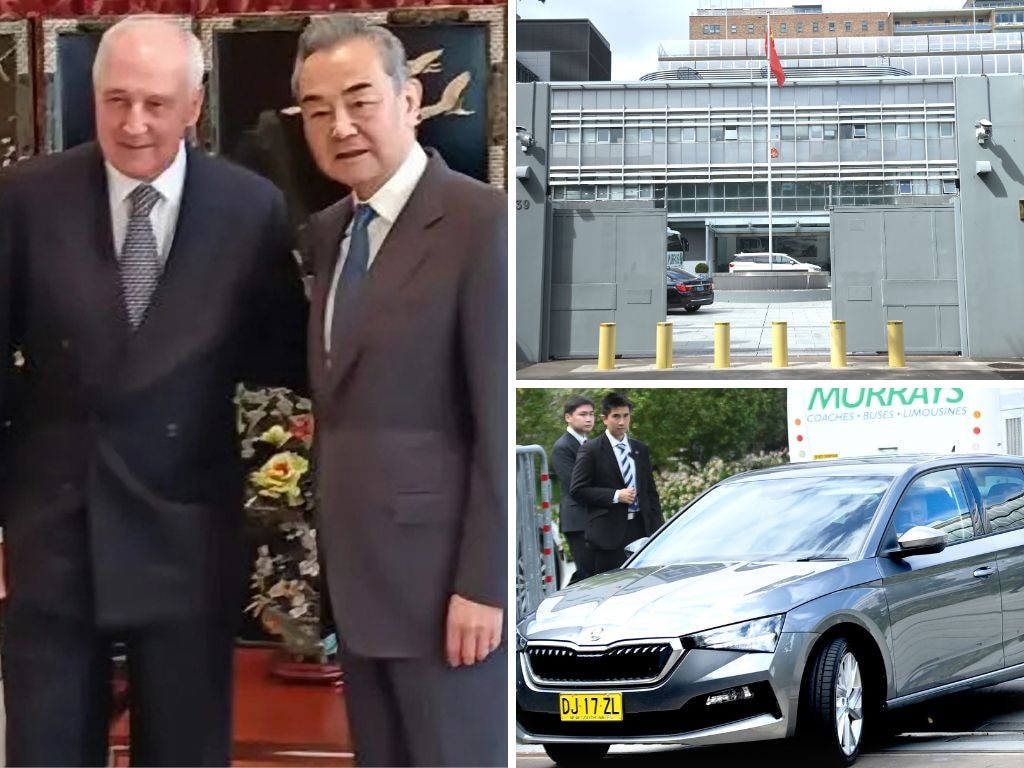
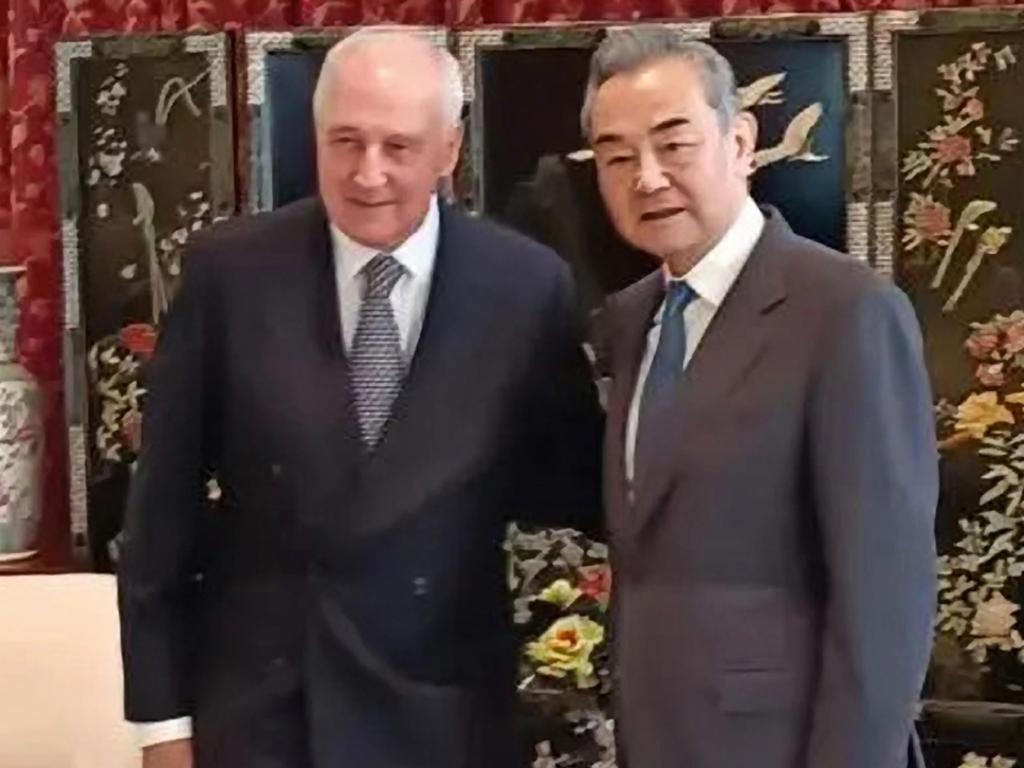
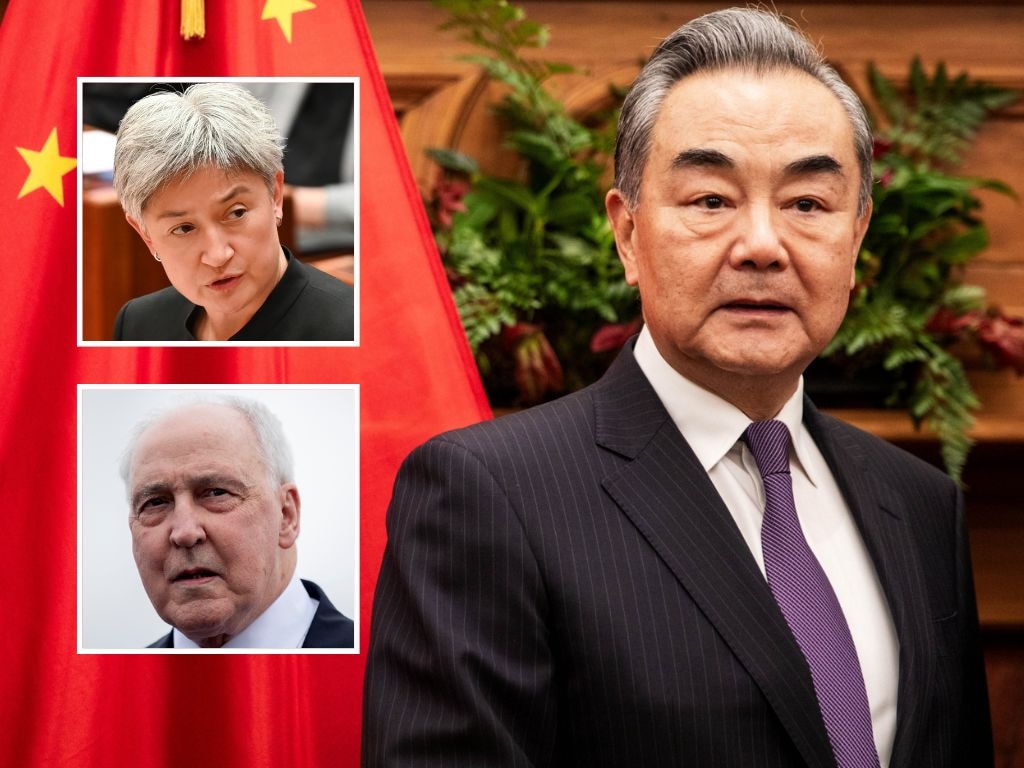



To join the conversation, please log in. Don't have an account? Register
Join the conversation, you are commenting as Logout